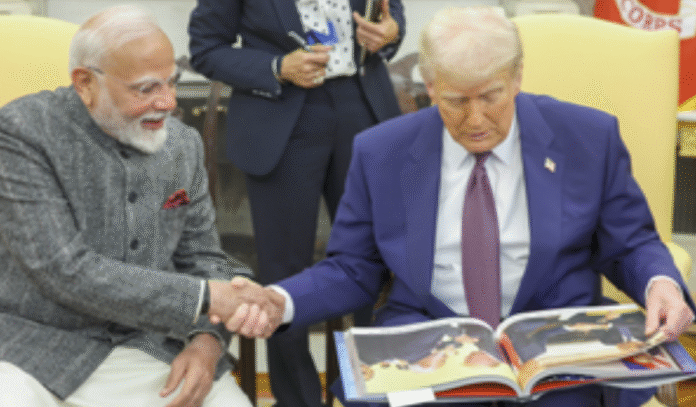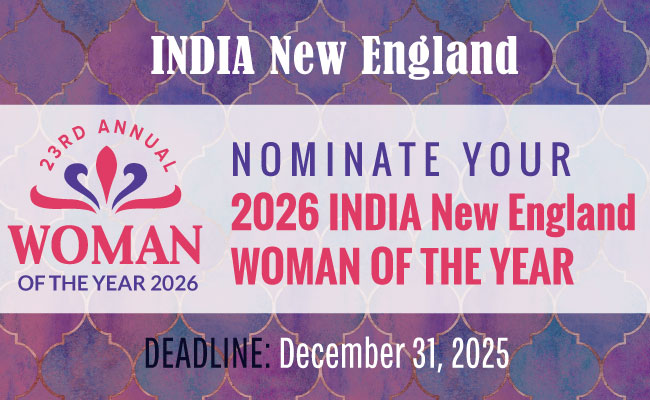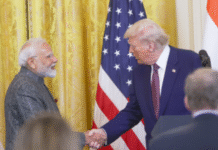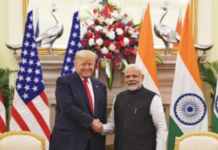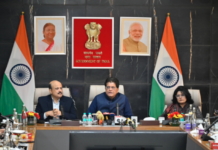New Delhi– U.S. President Donald Trump announced on Thursday that India has offered a bilateral trade deal under which a range of American goods would face “no tariffs,” marking a potentially significant development in the two countries’ evolving trade relationship.
Speaking during a meeting with business leaders in Doha, Qatar, where he is on a state visit, Trump said, “They are offering us a deal where basically they are willing to literally charge us no tariffs.” He did not provide further details or specify which products would be covered under the proposed arrangement.
In the same meeting, Trump also revealed he had urged Apple CEO Tim Cook to abandon plans to expand manufacturing in India and instead prioritize building production facilities in the United States. “Apple will be upping its production in the United States,” Trump added.
Trump’s remarks come as the U.S. and India continue negotiations on a wide-ranging Bilateral Trade Agreement. From April 23 to 25, representatives from India’s Department of Commerce and the U.S. Trade Representative’s Office held talks in Washington, D.C., aiming to finalize the first tranche of the deal by fall 2025.
The meeting followed earlier discussions held in March in New Delhi. According to India’s Ministry of Commerce, the discussions in Washington covered both tariff and non-tariff issues, laying out a roadmap for achieving “early mutual wins” and a “mutually beneficial, multi-sector” agreement.
“Productive sectoral expert-level engagements have already taken place virtually, with in-person meetings scheduled to begin at the end of May,” the Ministry said in a statement.
These trade negotiations are aligned with the “Leaders’ Statement of February 2025,” in which Prime Minister Narendra Modi and President Trump committed to deepening economic ties and integrating supply chains through a comprehensive trade agreement.
During Modi’s February visit to Washington, the two leaders discussed finalizing the first phase of the agreement by fall and launched “Mission 500,” a joint initiative to more than double bilateral trade to $500 billion by 2030. The initiative aims to promote fair trade, enhance national security, and support job creation in both countries. (Source: IANS)


